Christopher Patterson's Blog, page 3
April 6, 2017
You Don’t Open A Bookstore to Become Rich (except in BOOKS)
Twenty-eight years ago this month, my sister Tricia and I opened Mostly Books. We considered Beaucoup Books and a few other names but settled on Mostly Books as that is what we had in the store. We began with used books, unique greeting cards, and gifts. Our dad wondered what we were going to do with so many empty shelves in the store but it did not take long to fill them up by trading books for credit toward used books. Soon we started putting books on the top of shelves and then adding bookshelves to every nook and cranny we could find.

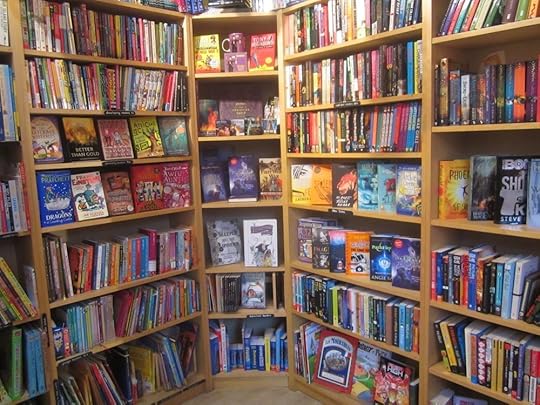
As the years went on, we added more and more new books as customers kept requesting them. We worked with many local authors to promote their books. We have always sold fiction, mysteries, children’s books, non-fiction, psychology, romance, westerns, southwest books and many other subjects. When the big chain bookstores moved into Tucson we adjusted our inventory again adding more and more backlist books. We greatly increased our selection of recovery books and we now carry all things recovery related including medallions and gifts. Selling books at offsite events and conferences also became critical to our survival. We look forward to the Tucson Festival of Books every March because we know we will sell tons of books, meet authors and market to thousands of new customers.
When another used bookstore moved into our shopping center, we increased our new book selection, t-shirts, mugs, sleep shirts and other book related merchandise. Our book inventory is now about half new books and half used books. Our greeting card section continues to grow as well and many of our customers say we have the best selection in Tucson.

Online booksellers, e-books and e-readers have also affected our sales tremendously. When people could buy the same book cheaper online and with no sales tax, they went for it in a big way. A lot of book lovers’ family bought them e-readers as gifts. We responded by selling Kobo e-readers and Kobo e-books on our website. The e-book trend has also inspired more people to read and has even help increase sales in our new books. People are finding that they want the physical book as well as the digital copy when the book is amazing.
Everyone who works in the bookstore is a book enthusiast. We love talking about books, discovering new books, open boxes that only contain books - if books are involved we are happy. So of course we all read A LOT and most of us belong to several book clubs. The nice thing about employing only book lovers is that our book selection is very selective. We try hard to find amazing authors to introduce to our customers so that our shelves never stay stagnant. It also means that are staff is happy to recommend a new author to our customers and, even better, will tell you that they have already read it and found it to be incredible. Our personalize customer service has help create loyal customers, and we truly won’t be here without their continual support.
Many people come in and say they want to open a bookstore when they retire so they can sit and read all day. We find that quite amusing and tell them we only get to read at home, not while working.
If you live in Tucson, you can find the wonderful people of Mostly Books and their extensive inventory of books at the Monterey Village, 6208 E Speedway Blvd. Also, give them a call at (520) 571-0110. Mostly Books is extremely friendly towards Indie and Local Authors - I know from experience - so make sure you support them with a visit and your business. You can also find them online at http://www.mostlybooksaz.com/
Make sure you visit Christopher Patterson’s website atwww.christopher-patterson.com and also make sure you sign up for his monthly newsletter where you can keep up to date with what’s going on in his world, his articles and blogs, get access to freebies, and experience promotional material. You can sign up for Christopher Patterson’s email newsletter at http://eepurl.com/b5AUa1
December 7, 2016
Complimentary Copy of A Chance Beginning in Honor of the Audio Release
Hey Everyone
In honor of the audio release of A Chance Beginning, I am offering complimentary copies of A Chance Beginning for kindle. Make sure you go to Amazon to pick up your complimentary copy of A Chance Beginning. You can do so by clicking on any of the hyperlinks. A since your kindle copy of A Chance Beginning won't cost you anything, you can click on over to Dark Winds, my second book and the continuation of the adventure begun in A Chance Beginning, for only $4.99. So, you can pick up the first two books of the Shadow's Fire Trilogy for only $4.99 and experience an adventure that is being enjoyed by Paolini, Tolkien, and Martin fans.

Once you get your complimentary copy of A Chance Beginning, and your copy of Dark Winds for under $5, click on over to audible and pick up the newly released audio version of A Chance Beginning, narrated by Amrit Sandhu.
And, if you haven't already signed up for my email list, make sure you do that as well: http://eepurl.com/b5AUa1

So, here's what you need to do. Pick up your complimentary copy of A Chance Beginning. Pick up your copy of Dark Winds for under $5. Go to audible and pick up the audio version of A Chance Beginning, which you can do with an audible credit, by the way. And, lastly, sign up for my email list.
Thanks everyone and HAPPY READING and LISTENING!!!
December 6, 2016
A Complimentary Copy of A Chance Beginning in honor of the audio release
Again, make sure you pick up your complimentary copy of A Chance Beginning today for kindle and then pick up a new copy of A Chance Beginning for audible.
Thanks and HAPPY READING!!!
Christopher Patterson
December 5, 2016
Audio Version of A Chance Beginning is now AVAILABLE!
You can now purchase the audio version of A Chance Beginning through Audible! How exciting is that?
Here is the link:
A Chance Beginning Audible Version
Thank you and HAPPY LISTENING!
September 19, 2016
Writing Process in Progress by Jordan Rivet

I’m an American writer living in Hong Kong. I got my start writing creative non-fiction about expat life in Asia, but found my true passion when I began writing the books I love to read: fantasy and science fiction. I wanted to build my own worlds and craft the kind of high-stakes adventures that keep me up at night.
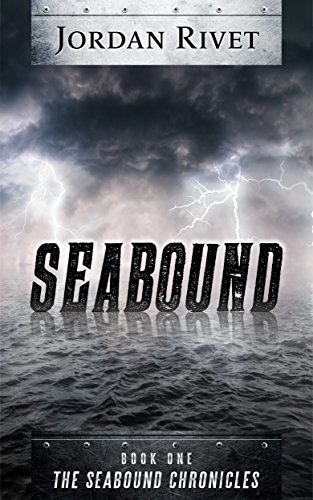
I published Seabound, a post-apocalyptic adventure set on a souped-up cruise ship, in the fall of 2014. My writing process evolved as I completed three more books in that series and started the Steel and Fire YA fantasy series. I’m now a full-time author and recently launched my seventh novel. My writing process continues to be a living thing, growing and changing as I learn from other writers and from my own experiences. Here’s what it looks like right now:
Stick to a routineHaving a regular writing routine is the most important part of my process. I write five days a week from 11 am to 7 pm. Forcing myself to get dressed and walk to work puts me into “writing mode” whether I feel like it or not. I go to the same Starbucks every day and work right through lunch. My Starbucks is in a busy international area, and it’s helpful to have life and variety around me while I write. I usually run out of steam around 4 pm, so I take an email and Internet break and then dive back in for another few hours. OutlineI get a lot of my ideas while working on other books. There’s no better time to get inspired than when I’m already in “writing mode.” If an idea comes to me, I’ll write it in a notebook or add it to an existing document on my computer. By the time I sit down to start a new book, I’ll already know a bit about the characters, the world, and the story arc. This saves me from the dreaded blank page! I like using a 3-act structure when I’m planning a new book. I type out a basic outline and fill it in with short paragraphs for each major plot point so I’ll know where the story is heading. Hammer out a rough draft
I usually write my rough drafts quickly. My record is 67,000 words in eight working days. In general, I bang out my initial drafts in a month, NaNoWriMo-style, because it helps me keep up the momentum in the story. I want to write page-turners, and it helps if I write as if I can’t wait to see what happens next.I also do a lot of my world-building here. It’s easier to come up with fantastical ideas and settings when I’m in the thick of writing the story than when I’m writing the outline. There will be plenty of time to make sure the world-building details are consistent in the later drafts. This part is all about making up cool stuff and seeing where the story takes me.At this point I consider the draft virtually unreadable. One of my biggest fears is that I’ll die with a draft in this state and someone will discover it in the future and be . . . underwhelmed.Build the structure
The next step is to print out the draft, read it through, and plug the events into a storyboard like this one. Looking at a classic story structure helps me see where the holes in my existing story might be. This is where I make final decisions about the plot and world-building and decide where to add or expand chapters. I’ll do this multiple times for different POV characters. Each person needs his or her own story arc.
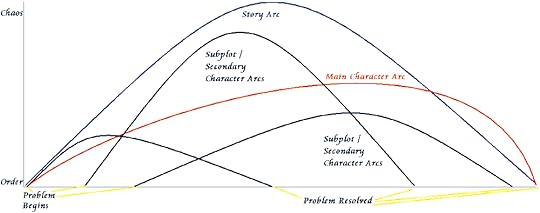
Craft the second draft
Writing the second draft is the most extensive and painful part of the process. It’s also a lot of fun. I get to take the raw material I’ve created and mold it into a book. I add and rearrange chapters, expand and intensify scenes, fill in the setting details, and make any big plot changes. I’ve had drafts grow by 40,000 words during the Draft 2 stage. At this point I also do a lot of polishing and rewriting. By the time this draft is finished, I feel pretty comfortable letting my trusty band of critique partners see it.
Collect and consider feedbackWhile my critique partners read and work their magic, I usually jump into another book. Momentum is really important to my productivity, so I continue to write even while I’m waiting for feedback. I sometimes read books on the craft of writing during this stage. It’s important to keep learning, but I don’t like to get distracted by how-to books when I’m in the middle of a fresh draft.
When my readers get back to me, I listen to their advice, paying special attention to issues of pacing and character development. These things are hard for me to judge when I’m so close to the characters and have spent so much time in the thick of the plot. My first readers help me isolate the issues I can no longer see on my own. Anything is fair game for revision at this stage. I’ve been known to kill off characters and add whole POV sections based on the advice of my early readers. The books are invariably better for it.
Draft 3+From this point I’ll do at least one more draft, depending on how much feedback I received and how much the language still needs to be polished. I’ll often add 10,000 or more words with each pass. My word counts always grow significantly throughout my process. Sometimes I’ll do up to five drafts, but that has become less necessary as my writing has gotten cleaner. Then it’s time to send the book off to my editor!Think in seriesAt the moment I’m writing entirely in series. I’ve written a post-apocalyptic trilogy and prequel, and I recently launched the third novel in what will likely be a five-book fantasy series. For both series, I haven’t been certain whether my ideas had series potential until I finished rough drafts of each Book 1.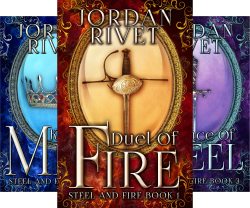
For later books in the series I repeat the process above, often beginning the initial stages before I get to the end of the previous book. This helps the characters stay fresh in my mind and keeps the momentum going. I still get my best ideas while working, and that includes ideas for the next in series.Shooting for sustainable productivity

If I finish a book on a Wednesday, I start right in on the next one on Thursday. I try to stay out of my own way by sticking to my routine and relying on the process that works for me. I want to be in this career for the long haul. Developing a consistent writing process is an important part of meeting that goal.My process will continue to change as I experiment with other strategies and figure out what works. That’s part of the fun of it! I may not be able to go on my own high-stakes adventures in a fantasy world, but writing is the next best thing.Author Bio
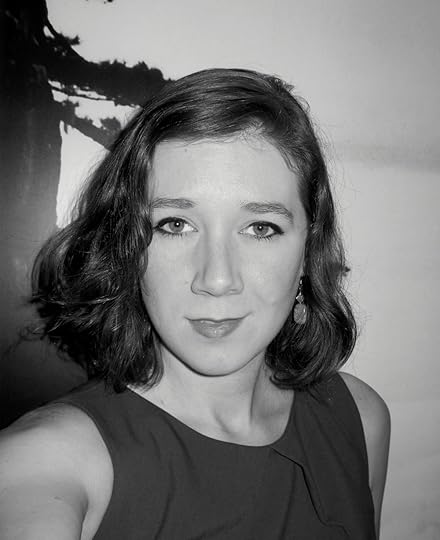
Jordan Rivet is an American author of swashbuckling YA fantasy and post-apocalyptic adventures at sea. Originally from Arizona, she lives in Hong Kong with her husband. She fenced for many years, and she hasn’t decided whether the pen is mightier than the sword.Find Jordan’s books on Amazon here! Make sure you visit Christopher Patterson’s website at www.christopher-patterson.com and also make sure you sign up for his monthly newsletter where you can keep up to date with what’s going on in his world, his articles and blogs, get access to freebies, and experience promotional material. You can sign up for Christopher Patterson’s email newsletter at http://eepurl.com/b5AUa1
September 14, 2016
Christopher Patterson’s Review of The Warded Man: Book One of the Demon Cycle Series by Peter V. Brett

A story about demons, tattoos, mysterious desert people, and a sexy heroine? Yes please. I am always looking for newer, up and coming fantasy and science fiction authors. Partly to get some inspiration for my own writing, but also simply because I am always looking for newer, fresher stories. Different takes on the classic fantasy format. Peter V. Brett does not disappoint. Brett gives classic fantasy lovers a great tale that is remotely reminiscent of other fantasy tales as well as those newer to the genre, and perhaps those who are not your typical fantasy reader, something that crosses genres and trails into mystery, intrigue, crime novels, and good old adventure.

Peter V. Brett has a knack for writing. His use of language and the written word propels the story forward. His characters seem multidimensional. They develop nicely throughout the story and seem very genuine through their dialogue. He develops several protagonists that the reader grows to love and care about. I really did become emotionally attached to Leesha and Arlen and Rojer. His story progresses quite nicely as well, fast forwarding several years at a time. One might think that this would hinder the story, perhaps make the reader what happened between these chunks of time, but that is not the case. And the world that Brett builds…well, I will leave that to you as the reader, but I am suspect that this world is more familiar than we might think. The twists leave the reader wondering where we are, when we are, and what is going to happen next.

So, on to the criticism. I gave The Warded Man four stars on Amazon and Goodreads. If I could have given it like, 3.5 or 3.75 stars I probably would have. Why? Especially with all the good things I just said about it. Well, there were, for me, several glaring things that frustrated me as a reader and, unfortunately, those things came at the very end of the book. As much attention as Brett pays his main characters, especially Leesha and Arlen, and as genuine as they seem, their actions, motivations, and characterizations at the end of the book seem very forced, almost fake. I have no desire to give any spoilers, so you will have to find out what those are for yourself. The plot, as well, seemed rushed towards the end of the book, almost as if Brett was on a deadline and he had to wrap it up. We have this great build through 85% of the book and then, BAM! the end. Now, being an author myself, I am familiar with story arcs, but this resolution seemed so sudden. And both Arlen and Leesha are confronted with some very serious issues that, because of the speed at which the book ends, don’t seem to be resolved in a very real way. Lastly, it seemed like there was confusion throughout the book in terms of point of view. I got confused in several places as to who the focus was on, where the camera lens was, whose thoughts are we listening to at that moment.

All in all, I would recommend this book to anyone who wants a fresh take on classic, epic fantasy and I am already reading (and listening to) The Desert Spear: Book Two of the Demon Cycle Series.
Make sure you visit Christopher Patterson’s website at www.christopher-patterson.com and also make sure you sign up for his monthly newsletter where you can keep up to date with what’s going on in his world, his articles and blogs, get access to freebies, and experience promotional material. You can sign up for Christopher Patterson’s email newsletter at http://eepurl.com/b5AUa1

September 13, 2016
The Epic Fantasy by Allen Werner


For those whom accept the challenge and choose to write an epic fantasy tale, a firm grasp of the world you want your characters to populate is as important to the story as the story itself. Authors will painstakingly map out entire worlds, filling the landscape with beautiful cities and thundering rivers, enormous mountains and pleasant meadows. And all of these places will have to be given a history and assigned a name, or designation, some sort of reference. And to further deepen the antiquity of the sites, cities and rivers, perhaps even the characters themselves, they might be known to different peoples, different races in different regions, by different names. If you look at the character of Aragon in J.R.R. Tolkien’s Lord of the Rings trilogy, you will find him known by many names including Strider, Estel, Ranger and eventually King Elessar.
Historical FantasyI write historical fantasy. To write historical fantasy, an author must judiciously research the region of the known world where the story will play out. This doesn’t mean we cannot add unique buildings, forests, towns and other elements to the world, but the base must be sound, the major markers identifiable. The author will also have to map out the time period, the past of that area and the people who once lived there, their language and customs, the artifacts and impressions they left on future civilizations. In my tale, The Crystal Crux, the city of Parthenope or Naples is one of the major metropolises. Although it is Italian, its roots are in Greece, in the adventurers who created the first settlement.

It is fantasy, but the author of historical fantasy will want to stay as true to the facts concerning the real world as possible. A writer will want the reader to question their knowledge of history, wonder what is true and what is not. To accomplish this, the author must have done their homework, combing through dozens of historical documents and books, atlases, religious script, as well as various manuals concerning art, architecture and indigenous plants and animals. All this gathering of information will ultimately fill myriad notebooks and there will be stick-it notes everywhere. If one is not careful it is quite easy for all this research to become overwhelming and ponderous, and eventually of little use.
Research and PrepareBefore you begin researching, I advise the writer to devise a storage locker, a final resting place for all this gathered information to be assembled and collated. Ask yourself, ‘How will I find this information again once it goes into the locker?’

The locker doesn’t have to be a physical file although some of us still prefer this tangible system over electronic options. You can create a locker on your computer or in the ‘cloud’. Just make sure you understand how the filing system will best operate for you, be it dates, places, methods, names, titles, whatever.
Grab the Readers' Attentions
No matter what type of book you are writing, it will require a powerful beginning, something to grab the reader’s attention. And I don’t mean the opening few lines. There are many theories on what works best but from what I’ve seen and read, when it comes to epic fantasy, there really are no rules. Most people who read epic fantasy already know what they are getting into. They are going to explore a world that goes beyond the first opening lines. They are going to give the whole first chapter a chance.
For a story to truly be epic, there have to be dozens of characters in several lands. There must be divisions and plot twists that ripple across seas and shake mountains.
This elaborate mapping of a fantastical world the author labored to create is going to eventually have to become a part of their reading mind. It’s not going to be simple and straightforward no matter what the first sentence says or even how the first chapter reads. There are going to be multiple characters in dozens of locales plotting various machinations to achieve numerous goals. It won’t be as pedestrian as a single protagonist versus a single antagonist. There will be many of both. And sometimes, protagonists will become antagonists and antagonists will become protagonists. There will be minor characters that enter. We will learn a great deal about them, even learn to care about them, and then they will simply go away. An epic, by definition, is going to bear the reader through an ocean of emotions and a tsunami of events. I don’t think it really matters to the epic fantasy reader which character, locale or plot you begin with. The story is going to grow way beyond that moment and most readers of epic fantasy are educated enough to know that. The author needs only guarantee that the opening chapter makes them want to be sucked into that world.
Keep the Readers' AttentionOnce the reader is sucked into your world, that is where the real challenge for an author begins. How do you expand the world without losing cohesion? I have read George R.R. Martin’s ‘A Song of Fire and Ice’ series and I will tell you there were plenty of times I had to backtrack to remind myself where in the world I was. He challenged us constantly. He would start a new book with a region and set of characters not even spoken of in the other books. Epic fantasy of any kind demands much from the reader. Martin seems to demand even more. But this demand, in turn, means there is a colossal onus placed on the author to write so well, that the reader will continue reading this strange new material believing it will eventually mesh with what is known. If the writing is weak and the palette no longer vivid and full of life, the reader will become lost and lose interest. It all comes back to the writer’s ability to make the fantastical sound tangible.

I have also found as an author, you want feedback from readers accustomed to reading the epic fantasy genre. Readers of other genres have different expectations and often find epic tales, no matter how well-written, to be obtuse and long-winded. They hate the constant flipping from one character to another to another and so on. I’ve had others tell me that flashbacks drive them mad – and I use a lot of flashbacks. I start my first book with a flashback.
In truth, no matter how you present the history or culture of the world you have so shrewdly researched, readers unaccustomed to epic fantasy will deem much of what you write to be wholly unnecessary. They will advise you remove it, shorten it up.


While we understand that every word written must be worth the author and readers' time, we are also seeing the larger picture. We want to bring that whole beautiful landscape to life and there is simply no condensing that. For a story to truly be epic, there have to be dozens of characters in several lands. There must be divisions and plot twists that ripple across seas and shake mountains. We can be obscene and throw thousands of dragons, vampires, hydras, griffins and unicorns into the story to please the audience but it is the elaborate setting that gives their existence purpose and meaning. The complexity of the world we create, be it historical or imaginary, defines great fantasy from all the rest.
About Allen Werner
The Crystal Crux - Betrayal, is the first novel by Allen Werner, and the first in 'The Crystal Crux' series. Allen Werner is a past winner of the Wisconsin Regional Writer's Association Jade Ring contest. Allen Werner is a history enthusiast with a passion for the Middle Ages, Greek, Roman and Norse mythology, as well as Native American studies. He follows the Way of the Sacred Names, Yahweh and Yahshua, plays soccer religiously and is an ardent supporter of rock and symphonic metal bands. Allen Werner lives in Southeastern Wisconsin with his wife, Susan. They have three daughters, three grandchildren and loving host of self-proclaimed extended children and grandchildren.
You can find The Crystal Crux - Betrayal at Amazon.comMake sure you visit Christopher Patterson’s website at www.christopher-patterson.com and also make sure you sign up for his monthly newsletter where you can keep up to date with what’s going on in his world, his articles and blogs, get access to freebies, and experience promotional material. You can sign up for Christopher Patterson’s email newsletter at http://eepurl.com/b5AUa1
September 8, 2016
On Writing Christian Fantasy by Dona Watson
Writing fantasy is a difficult thing to do and not for the faint of heart. And yet, it is a genre that many of us find ourselves inexplicably drawn to again and again.
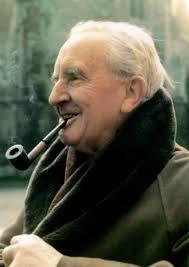
That’s because the realm of the imagination is a wonderful place. I think of it as brain candy. Orcs, unicorns, elves, angels, magic, trolls…each one of these are the work of someone’s amazing imagination.
As is well known, much of our current day fantasy fiction springs from the hotbed of Tolkien’s mind. But the roots of his creations hark back even further to the days of Norse imagination and mythology. However, Tolkien showed his mastery by taking an existing idea and making it better, developing it into something amazing that people could wrap their minds around.
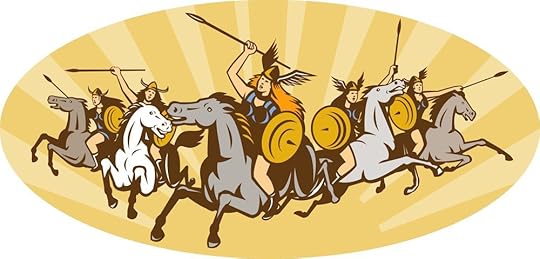
And that is what fantasy writers do. We take a wonderful idea, add our own angle, and create something new.
However, much like Tolkien initially experienced, we often find that our intended audience rebels against our creations, considering our stories too bizarre. In many ways, the world of Christian fiction has become a narrow marketplace. While some who read Christian fiction choose not to venture beyond the popular and into the wide world of fantasy, others of us yearn to do so, daring to consider the fantastical and the supernatural and ask, “What if?”.

When Tolkien created Middle-Earth, he took the creations of the Norse mind and molded them into the mindset of a Christian worldview. Angels became known as wizards. Demons became orcs and other dark creatures. (For a brief yet comprehensive explanation of the lineage of Tolkien’s creations that goes beyond this post, see this video: http://youtu.be/YxgsxaFWWHQ.)
It took years for many Christians to accept the creations of Tolkien’s mind and for the most part, his work is now a treasured part of our literary culture, even translated into film, the possibility of which Tolkien himself would never have dreamed.
While we might at times feel alone, Christian fantasy writers tread narrow rocky pathways that, if we look hard enough, have previously been trod by those who became masters at writing stories born in a mind firmly couched in Christian theology.
There are many “radicals” like ourselves who have found the confines of traditional Christian fantasy too restrictive, too narrow a place to express the outflow of our imaginations. Many of our fellow Christians who yearn to explore the realms of the fantastic have been forced to look outside of Christian publishing to satisfy their craving for more. And so we find the Christian fiction world to be in a Catch-22 situation. In traditionally published Christian fantasy fiction markets, there aren’t enough writers because there aren’t enough readers—and there aren’t enough readers because there aren’t enough writers.
However, the world of independent publishing has allowed us to create what I will call a gray market—a world that lies between the general fantasy market and the traditional Christian fiction market.
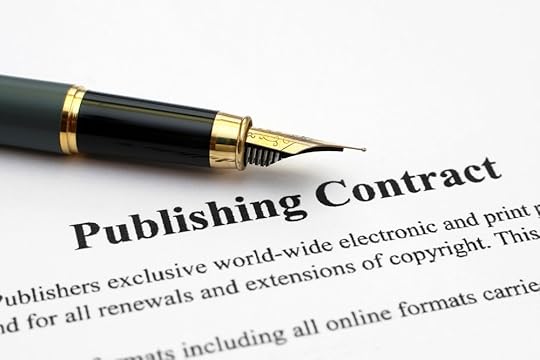
In addition, indie publishing has allowed Christian fantasy writers a forum in which we can speak our minds freely. As indie writers, we can create and publish books targeted at the general market and yet maintain our Christian worldview. Even more Christian fantasy writers have found a niche in the general market where they can hold their candle high.
As writers we find that our market has become reachable in so many ways. And the good news is that Christian readers are discovering this new outlet for stories they have long craved to read. Not only is it a good time to be a Christian fantasy writer, it is also a good time to be a Christian fantasy reader. And that, my friend, is a very good thing.
So to sum all this up, is it challenging to write fantasy from a Christian worldview? The answer would be an unequivocal “Yes” but mostly because writing fantasy is hard.

Is it difficult for a Christian fantasy writer to reach their readers? If you write fantasy for adults and try to find a traditional Christian publisher, you will find the going extremely hard. If, however, you have enough energy to become a small business owner and publish your own work as an indie writer/publisher, the opportunities are unlimited.
At least that has been my experience. If your story differs from mine, I’d love to hear it. Because, as they say, we’re all in this together.
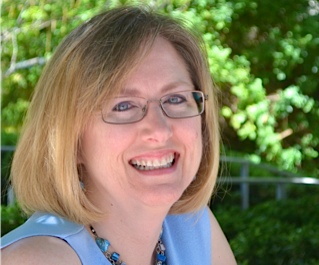
Dona Watson grew up with a book in one hand, dreaming about imaginary worlds of mystery and adventure. In high school, she found an old novel in a used bookstore, fell in love with fantasy fiction and never looked back. Look for her award-winning fantasy novel The Lightstone of Perlan, to be published this year, as well as other short stories online and in print. A writer and editor with an unbridled love for reading and writing fiction, Dona lives surrounded by way too many books in Southern California with a wonderful family and a precocious little dog. You can find her online at http://donawatson.com.
September 7, 2016
Christopher Patterson’s Review of Dragonvein: Book One by Brian D. Anderson

I recently wrote several articles about the process of writing. What was a little different about these articles in terms of writing was that they weren’t about editing or constructing characters or writing a plot line. These articles were about being a writer and creating a new and unique story within the constructs of stories that have already been told. We know that most fantasy novels are going to be some journey, quest, voyage, slaying the monster kind of story. So, how does an author make us, the readers, want to read their story. It has to be different. A different take on something. A different look at something. A different twist. That is what Dragonvein: Book One is.

Firstly, Brian D. Anderson does something I find very interesting and that is, the title to his books are simply Book One, Book Two, etc. At first, I thought maybe this was a mistake. How do I tell the stories apart. But after reading his first novel, it fits with the theme of new and different. We begin with an exciting action scene. Fugitives on the run from evil. And then we transition into World War II. What? I know. Different. New. Strange. I loved it. Anderson quickly lets us, the readers, know that this is not going to be a normal fantasy adventure. Nor is it going to be your typical, convoluted multi-dimensional sci-fi adventure. This is a tale that takes many of the normal nuances of fantasy and turns them on their head. He has the normal players—dragons, dwarves, elves, magic. But its different. The elves are not your typical elves, not are the dwarves. Magic is not simply something someone learns in a book. It’s a refreshing view of fantasy and science-fiction. And at the end of the book, we realize that it is a quite interesting blend of both fantasy and science fiction.
Anderson does a pretty good job of developing his characters. No one is perfect. There are certain characters that might seem a little shallow and certain characters that could have used a little more development, but for the most part, his characters are believable and interesting. The plotline is well constructed as well. The story is action oriented and Anderson does a good job of pulling in the reader emotionally.
"Ethan has only one hope – to reach the dwarf kingdom of Elyfoss"

I also enjoyed the plot twists, especially towards the end of the book. The plot is, perhaps, a little predictable, but then again, what fantasy and science fiction plot isn’t. I would definitely recommend this first installment of the Dragonvein series to anyone looking for a refreshing and well written fantasy adventure and I have already bought and started reading Dragonvein: Book Two.
Make sure you visit Christopher Patterson’s website at www.christopher-patterson.com and also make sure you sign up for his monthly newsletter where you can keep up to date with what’s going on in his world, his articles and blogs, get access to freebies, and experience promotional material. You can sign up for Christopher Patterson’s email newsletter at http://eepurl.com/b5AUa1




